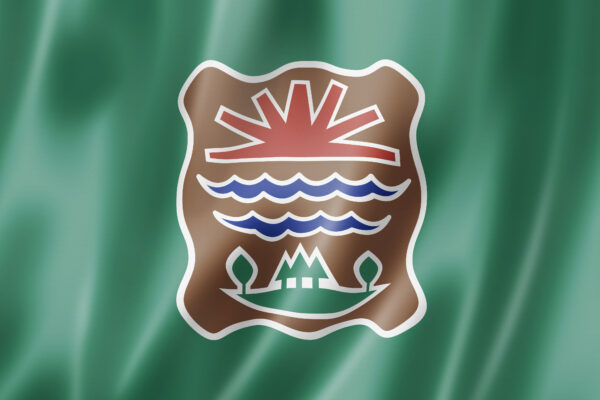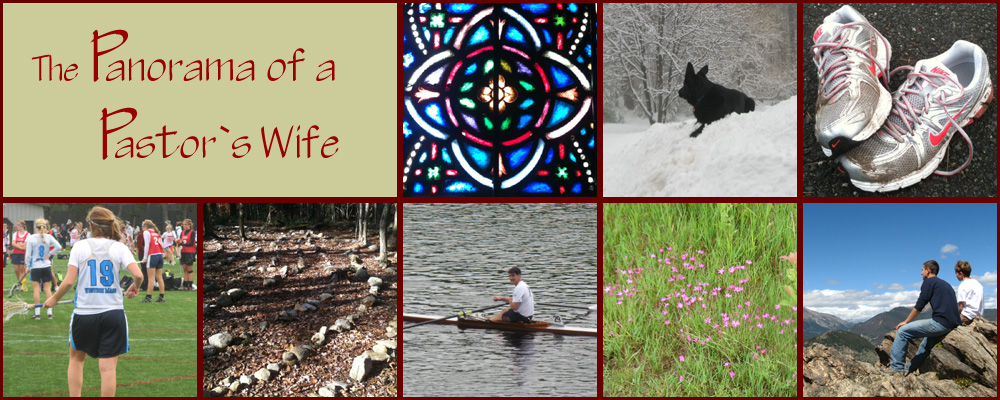This Time, I Went With Him
Is it possible to have a holiday do double duty — say, wholeheartedly embrace Indigenous People’s Day while not spurning absolutely everything related to Columbus Day; or perhaps ditching the Columbus (who never stepped foot in the US mainland) part and thinking of that second Monday in October as primarily Indigenous People’s Day, because it’s about time, but making some room for Italian Heritage Day; or maybe, with full enthusiasm for the new designation, looking elsewhere in the calendar for a different day to celebrate Italians since the Irish have St. Patrick’s Day, which has in fact never been a federal holiday, but no matter?
Phew.

Good thing I’m not going to try to answer that question. I’m on much safer ground if I just describe how a recent excursion as a pastor’s (OK, bishop’s) wife opened a particular door wider for me.
What It Was
I don’t usually accompany Rob to his Sunday visitation services — and of course during Covid he didn’t get around much anyway — but this past Monday I decided to join him for a trip down 93, which is always nostalgic, for me, with memories of early morning drives down to bells ringing for high school classes just over the Massachusetts border. But I digress: this isn’t about my former commutes (yawn).
On Monday we were headed to St. Peter’s Church in Londonderry, for an unusual event. Most of the attendees were on-line, through the Digital Mission of New Hampshire. But in attendance were some remarkable guest speakers, so I’m glad I followed my hunch that going in person would be better than looking at a screen. Besides, times when Rob and I are in the car together in this way of life are rare.
Here’s what the program looked like:

Hard to read, right? The first part of the service, called “Opening Land Acknowledgment” is worth sharing in its entirety. The Rt. Rev. A. Robert Hirschfeld delivered this.
We acknowledge the spiritual and physical connection the Pennacook, Abenaki, and Wabanaki Peoples have maintained to N’dakinna (N-DAH-keen-nah) and the aki (land), nebi (water), olakwika (flora), and awaasak (fauna) which the Episcopal Church of New Hampshire strives and learns to steward today. We also acknowledge the hardships they continue to endure after the loss of unceded homelands. We reaffirm The Episcopal Church’s renunciation of the Doctrine of Discovery. We repent of these sins and take responsibility for working to repair these damages ecumenically. We seek to foster relationships and opportunities that strengthen the well-being of the Indigenous People who carry forward to traditions of their ancestors.
Sometimes, when correcting a massive injustice isn’t fully possible, making a formal “Acknowledgment” is a very decent step. And when I hear “the loss of unceded homelands” and then “the Doctrine of Discovery,” I see this region of New Hampshire, widening to all of New England, then — let’s head in any direction — vast territory stretching across North America that was taken by Europeans who invented grand names (“Doctrine of Discovery” sounds like a flawless policy) for the wrongs they were committing.
Some Very Busy People
In addition to three Episcopal priests who participated in the service, three individuals affiliated with a branch of the Abenaki tribe https://www.cowasuck.org/history.html and also with an organization based around UNH called Indigenous New Hampshire Collaborative Collective https://indigenousnh.com/ gave presentations. The first one, given by Paul and Denise Pouliot from Alton NH, who are leaders of the Cowasuck Band, offered a sweep of history, including stunning facts like, “For 13,000 years Indigenous People lived here, stewards of the land..” and how a list of key misconceptions — let’s start with the horrid term “savages,” not at all the same meaning as the French “sauvage”– have been so hard to shake.
Kathleen Blake of INHCC gave the second presentation, about the estrangement from the natural world that is all too common in our society. She said that many of us live “on the world, not in it.” I was struck by the construction, and I could tell just by a slight move of his head, so was Rob. He asked her to say more about the significance of these prepositions later on. And we also learned from Denise and Paul about the multiple environmental projects that are currently underway, many directly addressing climate change, and all involving collaboration between members of their tribe and researchers from the outside.
Honestly, I have no idea how they do so much.
After-Effects
I’m sharing those websites with enthusiasm, because just wait until you see how much there is to learn through all the various tabs you’ll find. I can’t promise that every little part is fully updated (how hard is that?) but I’ve spent only a few minutes scanning through and am definitely going back. I already found a documentary film — about a controversy over the building of a dam around the Great Bay — called Swimming Upstream that I remember Rob mentioning a couple of years ago. I didn’t watch it when it first came out, but thanks to the INHCC website, and quite possibly some smart undergraduates who helped this effort, I can now see it anytime.
Since Monday’s service, I’ve also gone into our son Henry’s old bedroom in this house and found a book on his shelf — there are a lot of good ones there — that I’d noticed a while ago: An Indigenous People’s History of the United States by Roxanne Dunbar-Ortiz (Beacon Press, 2014). Before, I’d glanced at the title; now, I’m getting started.

So, yes, I’m fine with bidding so long to Columbus Day, with no offense to the many Italians whom I love. Figuring out what to do about history, how to make amends, will continue to be a practically unsolvable problem. But I’m glad that deciding to go to one service, for me, resulted in a door opening wider, and a better vision, through it, of a people’s “N’dakinna.”


I too made a land acknowledgment on Indigenous Day at a meeting I attended. I was afraid that it could be a perfunctory statement but it felt powerful and I felt that people are slowly starting to change their mindset. As an Italian American, Indigenous Day feels right to me.
Thanks for this, Mary Jo. You are not known for “perfunctory” actions or statements, so I have no doubt that the land acknowledgement you took part in was meaningful. Glad to know we were in a kind of synchrony on that day!
Thanks for all this insight, dear Polly, and I love the N’dakinna banner, so expressive too.
Love to you and Rob, Scottie
Thanks so much, Scottie. Yes, the design of that banner is spirit-lifting!
I am fine with losing any connection Italians have to the holiday! Columbus isn’t who I’d boast about anyway. So many other great Italians and Italian Americans.
So true, Clare! And I couldn’t imagine having a better first Italian (and half Irish, too) friend. It’s always a pleasure remembering each of your parents, and the hospitality of their — your — home.